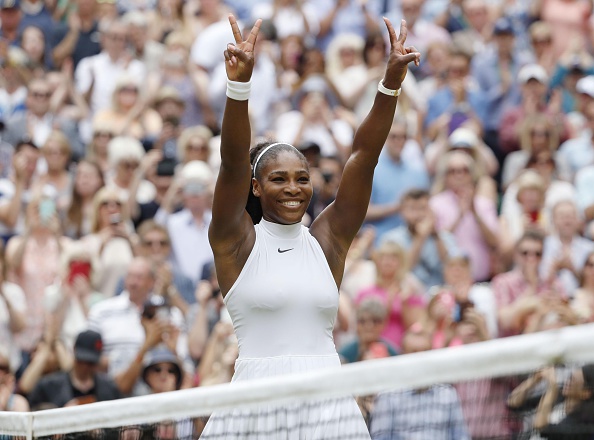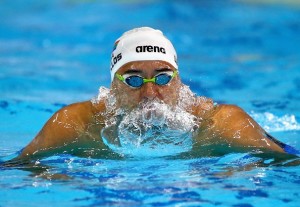Tennis’ superstar is probably the finest sportswoman of all time and looking for more success in Paris, writes CLINTON VAN DER BERG.
The streets of hardscrabble Compton aren’t known for producing model citizens. But that never stopped Serena Williams. Embracing the challenges of playing amid dirt and broken glass, she emerged as a mould-breaker. Now she’s world No 1 and entrenched as the finest sportswoman in the world.
She’s also on the cusp of equalling Steffi Graf’s total of 22 Grand Slams, a mark she could claim in May’s French Open. If the American is successful, tennis’ Everest awaits: Margaret Court’s all-time record of 24 Major titles. Given Williams’ form, longevity, dominance and remorseless hunger, the record could crumble as easily as many of her opponents.
Williams was never comfortable with just being ordinary. Her father, who drove her and sister Venus relentlessly from when they were barely out of nappies, inculcated an inner toughness that is the foundation of her game.
And toughness is what she will bring to the clay courts of Roland Garros. Three times she’s held the Coupe Suzanne Lenglen aloft, but her win-loss ratio in Paris is inferior to her record at the other Majors. She won her first French Open title in 2002 and had to wait another 11 years until the next.
It says much for her persistence, but also points to the effects of playing on her least favourite surface.
Fortunately she found her form last year. Despite dropping a couple of sets along the way, she affirmed her status as the standout player in the women’s game with a compelling defeat of Lucie Safarova. The victory also gave Williams her third career Grand Slam.
Williams has been No 1 on six separate occasions; any suggestion that she has been anything less than superior to her rivals is misplaced. Apart from her sister Venus, no one else has managed to even enter the realm of offering a decent rivalry. Venus is the only player to have beaten her in double figures (11 times to Serena’s 16), while the highest-earning sportswoman of the modern age, the now disgraced Maria Sharapova, has a pitiful 2-19 win-loss record against Williams.
A single player, former world No 1 Arantxa Sanchez Vicario, has a superior record (4-3), although the sheer scope of Williams’ work makes that an aberration.
Her dominance over former world No 1s includes some of the biggest names in tennis, among them Martina Hingis, Justine Henin, Kim Clijsters and Caroline Wozniacki, her best friend.
Women’s tennis is more capricious than the men’s game, so it’s difficult to confidently flag who might topple Williams from her perch.
It might be Germany’s Angelique Kerber, who has beaten Williams when it counts and is ranked No 2. But the German has been a slow-burner and is already 28.
Simola Halep of Romania has also beaten Williams, but she’s chopped and changed coaches and is maddeningly inconsistent.
Belarus’ Victoria Azarenka is always worth an outside bet, but with a 4-17 record against Williams, no one is touting her as the heir apparent. She recently beat Williams in California, but the American was obviously off her game, playing poorly in the final.
Style wise, the closest player to Williams is Garbine Muguruza of Venezuela. She beat Williams in Paris two years ago and has a solid all-round game, but vagaries of form haven’t helped her.
The most intriguing of the lot may be Switzerland’s Belinda Bencic, who is 1-1 against Williams. Just 19, she’s the only teen in the world top 50 and is mentored by Martina Hingis. Her instincts are first rate, but her power game is lacking, never a good thing when you’re in the Williams sweepstakes.
Poland’s Agnieszka Radwanska is always there or thereabouts, but she’s ranked third for a reason – she’s not good enough to dominate Williams.
You can throw a couple more into the mix – Madison Keys, Ana Kvitova, Sloane Stephens and Eugenie Bouchard – but you suspect that at 34, Williams still has too much firepower for the new wave. And that’s in a literal sense. Until her and Venus came along, women’s tennis was less about power and more about versatility, good ball sense and clever craft. The Williams sisters brought muscle to the game and thus far no one has been able to match it.
As Graf recently remarked, ‘Serena has the most powerful serve of all time in women’s tennis by far. And her physical strength … no one has shown anything similar in this sport.’ The German has no doubt Williams will soon claim her record. ‘I am sure Serena will pass me,’ she told ESPN. ‘Let’s be honest, all of us think she will do it. And she will do it soon.’
Last year, an ESPN-run public vote saw MMA fighter Ronda Rousey edging Williams as the greatest female athlete in history. It was a laughable designation made more ridiculous a few weeks later by the sight of a groggy and bloodied Rousey trying to regain her consciousness after being knocked out.
Given her dominance and staying power, Williams could lay claim to being the best sportswoman of all time. She would get an argument from fans of Babe Zaharias, Jackie Joyner-Kersee and the tennis trio of Graf, Martina Navratilova and Billie Jean King, but her stats stack up, as does her standing in a cultural context.
Williams has been a pioneer for black women, thriving in a traditional white environment. Such things matter, much as they did for Muhammad Ali, who transcended his sport less by his boxing than by his strong social conscience. Her habit of mould-breaking has seen her parlay her skill and personality into a successful business world that incorporates film, TV, fashion and even NFL team ownership and an educational foundation. She’s also become a cultural touch point with roles in The Simpsons and her own film, Serena, due for release in June.
Whatever happens in Paris, as defending champion Williams will draw thousands to her light. The most compelling, driven player of her age, she is a phenomenon who remains defiantly on top of her game and indeed tennis itself.
Straight outta Compton indeed.
Photo: Kyodo News/Getty Images





